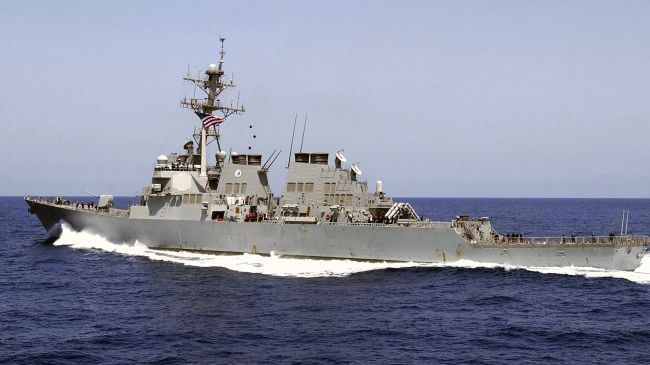Thousands of Philippine and U.S. soldiers began annual war games on Monday, the first under a new security pact with the United States.
 Thousands of Philippine and U.S. soldiers began annual war games on Monday, the first under a new security pact with the United States, focusing on maritime security in the face of China's growing naval presence in the disputed South China Sea.
Thousands of Philippine and U.S. soldiers began annual war games on Monday, the first under a new security pact with the United States, focusing on maritime security in the face of China's growing naval presence in the disputed South China Sea.
The joint exercises "Balikatan" (shoulder-to-shoulder) would test the combat readiness of the two oldest allies in this part of the world to respond to any maritime threats, including piracy and humanitarian assistance and disaster response.
The new security pact was signed last week just hours before U.S. President Barack Obama visit. Obama said the agreement was a testament to Washington's "pivot" to Asia and was an "ironclad" commitment to defend the Philippines.
The Philippines has territorial disputes with China over the South China Sea, which is said to be rich in energy deposits and carries about $5 billion in ship-borne trade every year. The Spratlys in the South China Sea are also claimed by Brunei, Malaysia, Taiwan and Vietnam.
Asked about the exercises, Chinese Foreign Ministry spokeswoman Hua Chunying said all sides needed to work "constructively" to maintain peace and stability in the Asia Pacific region.
"We hope that the relevant U.S.-Philippines drills can work in this direction," she told a daily news briefing.
Nearly 5,500 American and Filipino troops are taking part in the two-week drills in different parts of the main island of Luzon. The war games will see U.S. F-18 fighters rehearse bombing runs and troops involved in live fire drills.
Under a new security pact, the Enhanced Defense Cooperation Agreement, signed last week during Obama's visit, the U.S. will have wider access to local bases and construct facilities to store supplies and equipment for 10 years in exchange for increased support on maritime security and humanitarian assistance.
The annual war games come under the 1951 Mutual Defense Treaty, part of a web of security alliances the United States built in the Asia-Pacific region during the Cold War.
Dozens of leftwing activists protested outside the main army base in Manila, saying the Americans were using China as a bogeyman to gain a forward base in the Philippines.